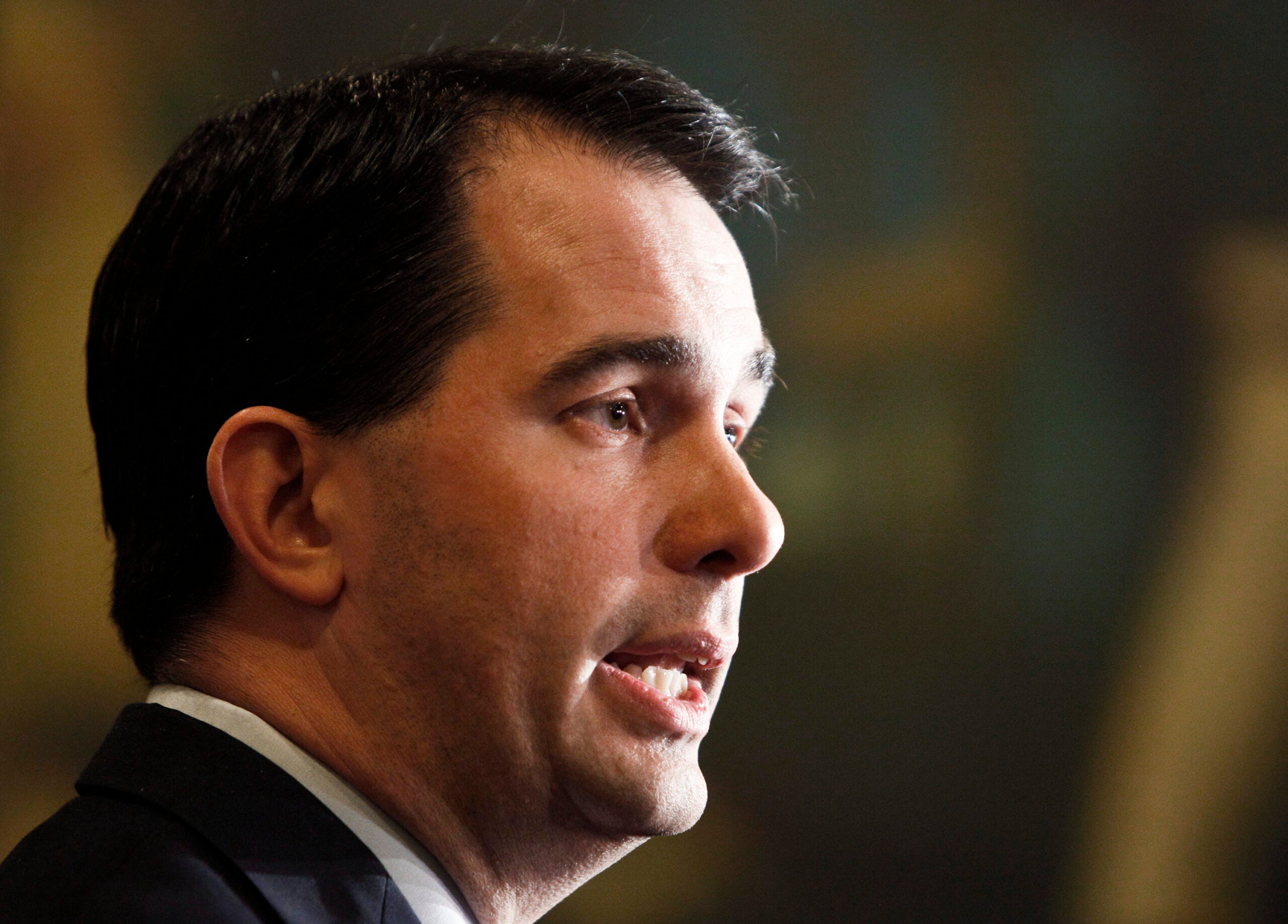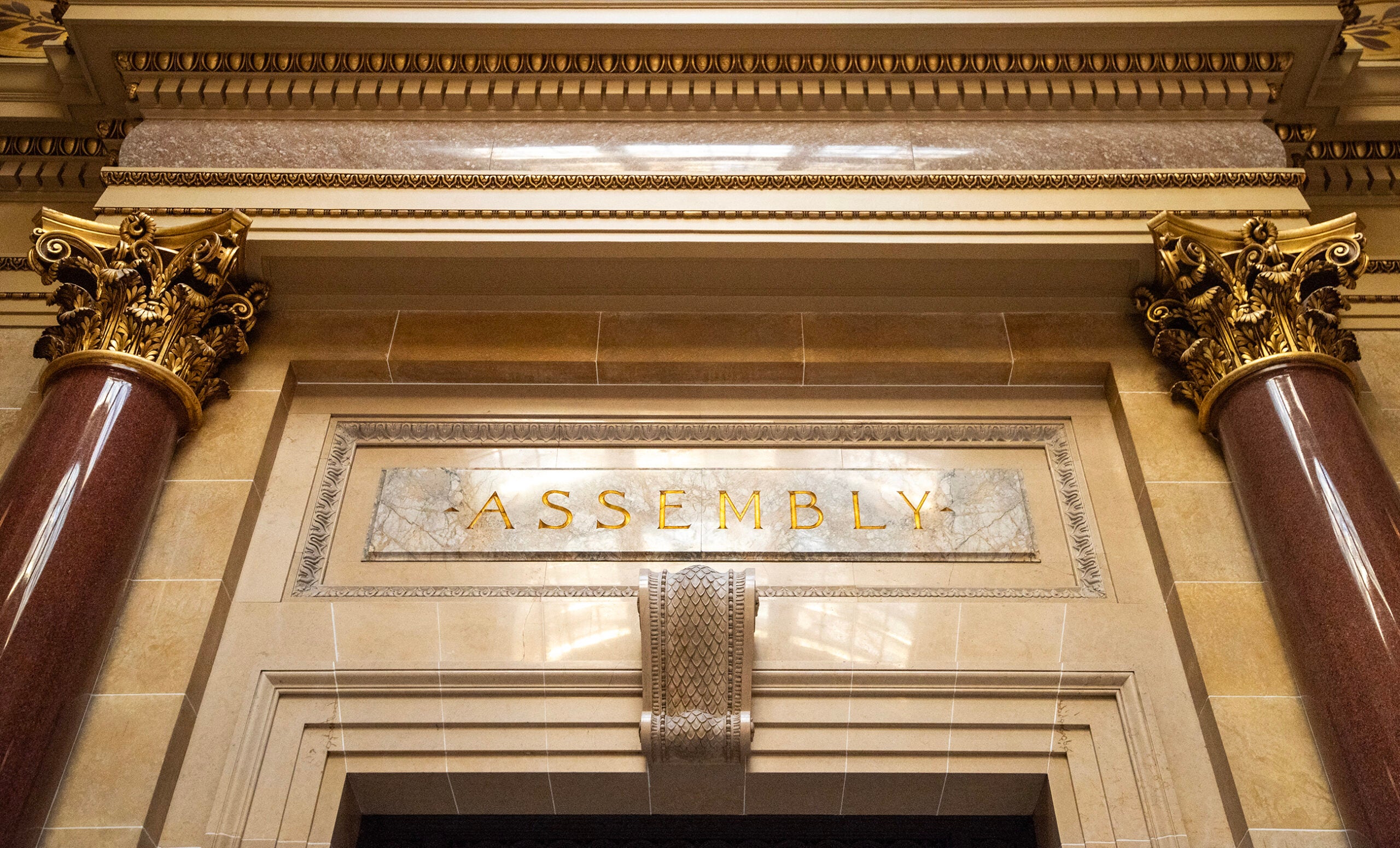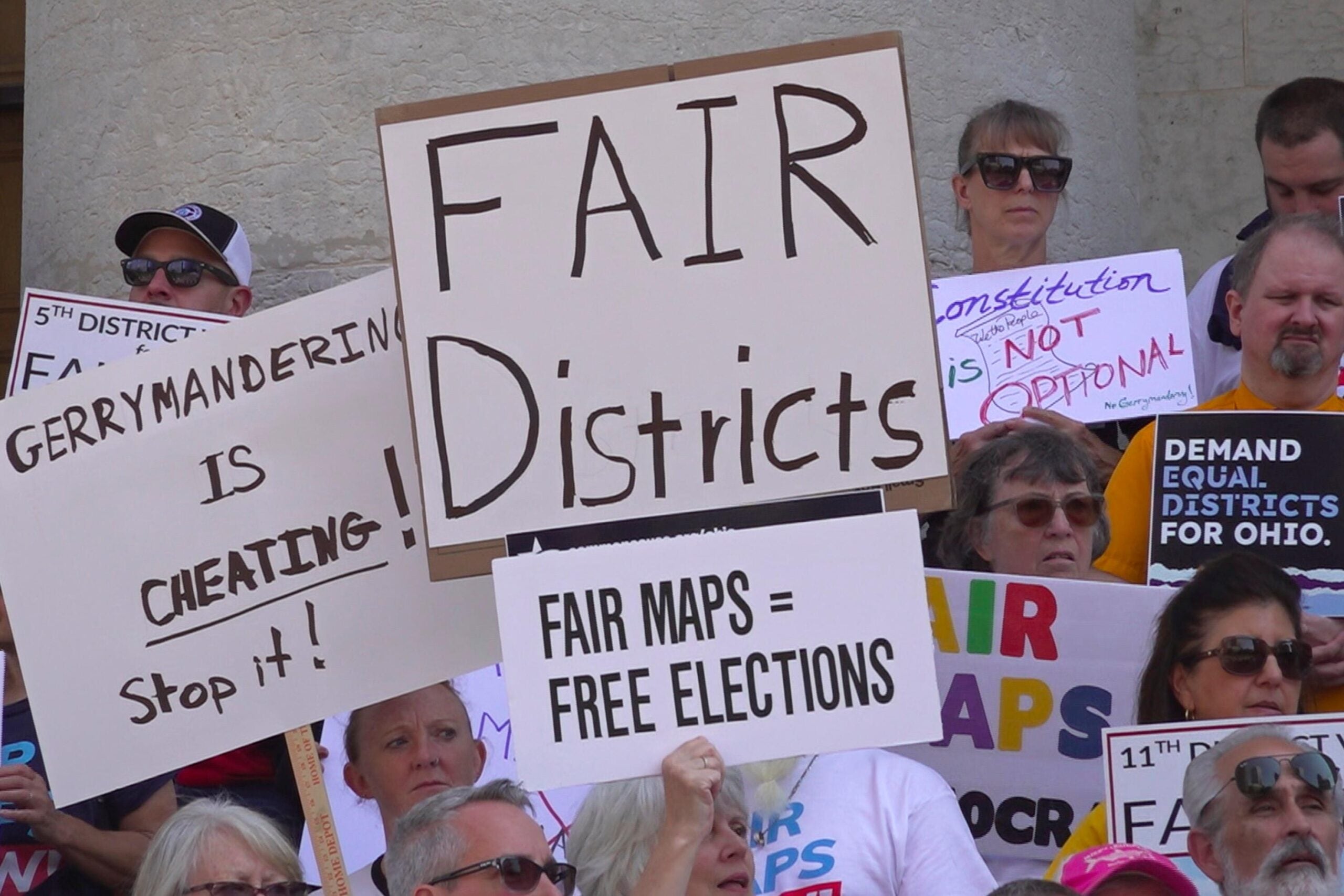Gov. Scott Walker has ordered special elections for two state legislative districts that have been vacant since late December. The votes are scheduled for June 12.
Walker made the announcement Thursday morning at 8:40 a.m., just hours before the noon deadline set last week by Dane County Judge Josann Reynolds.
Wisconsin’s 1st Senate District and 42nd Assembly District have been vacant since Dec. 29, 2017, when former state Sen. Frank Lasee and former state Rep. Keith Ripp resigned to take jobs in the Walker administration.
News with a little more humanity
WPR’s “Wisconsin Today” newsletter keeps you connected to the state you love without feeling overwhelmed. No paywall. No agenda. No corporate filter.
While Wisconsin state law requires governors to call special elections to fill vacancies “as promptly as possible,” Walker resisted for months, arguing the law was vague and that calling elections for these seats would be a waste of taxpayer resources because the Legislature was set to finish its business by March.
Walker’s decision to call the special elections on Thursday came only after he had all but exhausted a legal fight to delay Reynolds’ order, a fight that saw the governor admonished by three separate judges in less than a week.
Last Thursday, Reynolds ruled that Walker had a “plain and positive duty” to call the elections, saying Walker’s suggestion that the law gave him leeway was “absurd in its application.”
Republican legislative leaders responded by announcing Friday that they would reconvene the Senate and Assembly to pass a bill that would change special election laws.
The bill they unveiled Monday would alter the timelines for special elections in Wisconsin, effectively barring special elections for these districts in the process.
Lawyers for the Wisconsin Department of Justice, which is led by Republican Attorney General Brad Schimel and represented Walker in this case, asked the court to delay its earlier ruling in light of the Legislature’s plans to change the special election statutes.
On Tuesday, Dane County Judge Richard Niess rejected that move, telling attorneys for Walker that it was not the place of a court to rule on a bill that might or might not become law.
“You’re asking that I suspend or reschedule the mandatory act by Gov. Walker to allow the Legislature to take up a bill that’s going to affect the voters in Assembly District 42 and Senate District 1 when they have no say in that bill at all,” Niess said.
DOJ lawyers asked the Wisconsin Court of Appeals to reconsider the case on Wednesday, but their appeal was quickly rejected.
“The Governor understands he has an obligation to follow the law as do we,” wrote District 2 Court of Appeals Judge Paul F. Reilly.
The DOJ had said earlier that it might ask the Wisconsin Supreme Court to get involved in the case, but by Wednesday night, Walker decided against it.
Moments after Walker’s announcement, Senate Majority Leader Scott Fitzgerald, R-Juneau, told WTMJ-AM radio in Milwaukee that senators would not pass a bill in extraordinary session next week that would rewrite special election laws.
The bill being pushed by GOP leaders stated that it would apply retroactively, “notwithstanding any other law, court order, or order of the governor.”
That meant it could have theoretically halted the special election process for the 1st Senate and 42nd Assembly districts, despite the governor’s order.
The bill received a hearing Wednesday, but Fitzgerald said Thursday morning it would not pass.
“I cannot bring it to the floor at this point,” Fitzgerald said. “I’ll have another judge slapping us down.”
Walker’s order means that candidates for the 1st Senate and 42nd Assembly districts can begin circulating nomination papers today.
Both offices will be up for re-election in November.
Wisconsin Public Radio, © Copyright 2026, Board of Regents of the University of Wisconsin System and Wisconsin Educational Communications Board.






